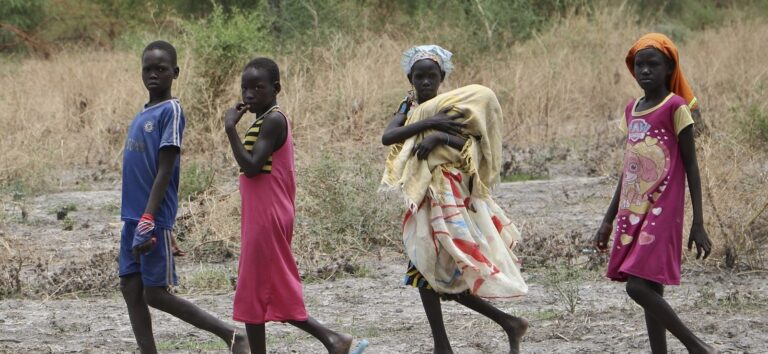When deadly clashes between Bor pastoralists and Magwi youth forced thousands to flee their homes earlier this year, survival became a daily struggle for residents of Agoro, Chomboro, and Nyolo in Magwi County. Displaced families—mostly women and children—took refuge in schools, relying on wild foods to stay alive. Then, China stepped in.
In April, the Chinese Embassy in Juba delivered food aid—maize flour, rice, sugar, cooking oil, salt, and utensils—to approximately 22,000 displaced people in Magwi. The intervention not only saved lives but also rekindled hope among a population battered by conflict and hunger. Now, as a prolonged dry spell threatens harvests, Magwi’s residents are appealing for continued support from China and other donors to help them rebuild.
“The Little That Made a Big Difference”
For Vicky Achiro, a mother from Nyolo, the 10-kilogram food ration was a lifeline. “It sustained my family and gave me hope to return home and start again,” she said. Though grateful, she admits the aid was insufficient. Many shared their portions with neighbors who had nothing. “We thank China, but we still need more—our children are hungry, and the dry season has ruined our crops.”
Jimmy Nelson, a resident of Chomboro, recalls how the aid arrived at their most desperate moment. “Before China’s help, we survived on wild leaves. The food gave us strength to return to our village and work,” he said. “Even if it was small, it changed our lives.”
From Relief to Recovery
The food aid did more than fill stomachs—it allowed families to shift from survival to rebuilding. Okot Romeo, Paramount Chief of Agoro Payam, noted that the assistance provided just enough energy for people to resume farming. “Some households stretched 10 kilos over several days. It wasn’t much, but it helped us plant for the future,” he said. Still, he emphasized the need for continued support: “Without food, you can’t work. We urge China to remember us.”
Betty Achan Ogwaro, Magwi’s representative in the national parliament, praised China’s timely intervention. “Food is life. This aid rescued people from starvation and encouraged them to return to farming,” she said. However, she stressed that more assistance is crucial—not just food, but also peace-building initiatives.
Football for Peace: A New Appeal
Beyond food, Magwi’s youth are calling for an unconventional form of support: football. Ogwaro revealed that young people want to organize matches with the Bor community—the very pastoralists they clashed with—to foster reconciliation.
“The youth want footballs to play with Bor. They believe sport can bring peace,” she said. “We don’t want cattle conflicts in Magwi anymore. If China can support this, it will help end violence.”
A Plea for More Support
While China’s aid has been a beacon of hope, the people of Magwi know their journey to recovery is far from over. With poor harvests looming and villages still rebuilding, they are asking China and other well-wishers to extend their help once more.
As Achiro put it: “May God touch China’s heart to remember us again.”




